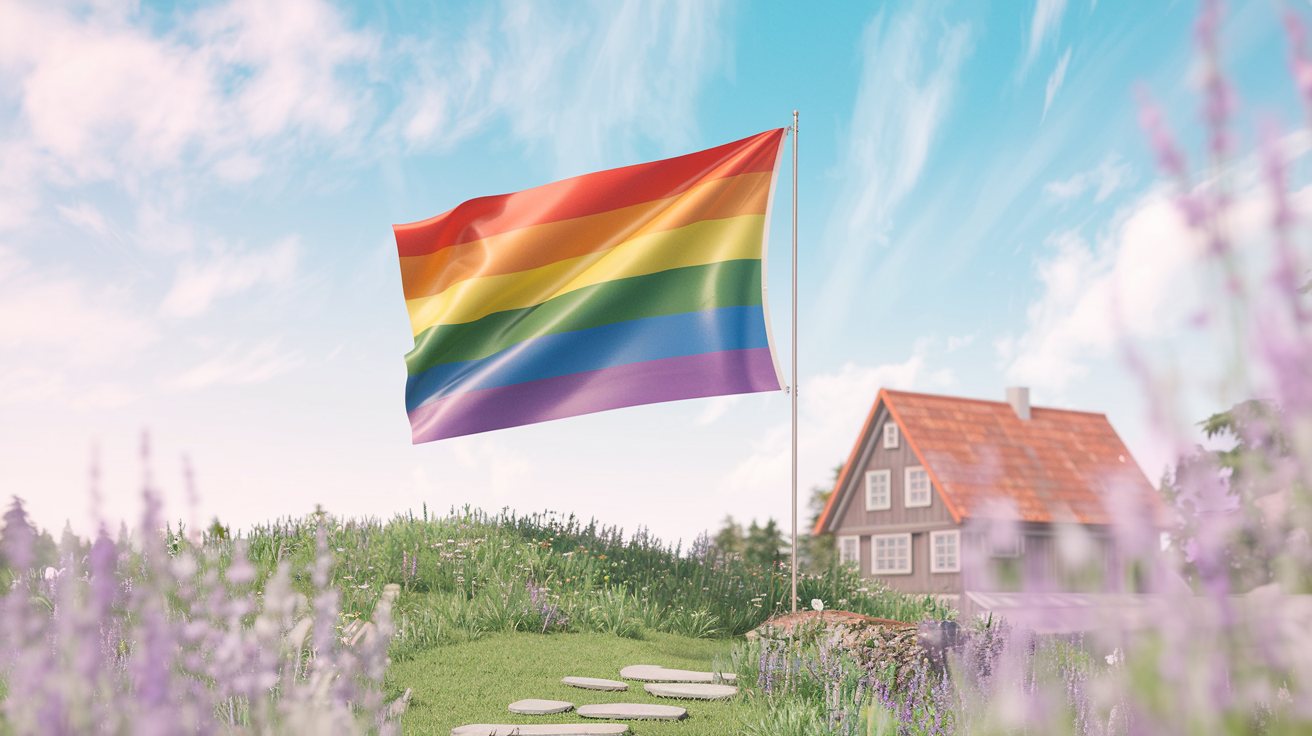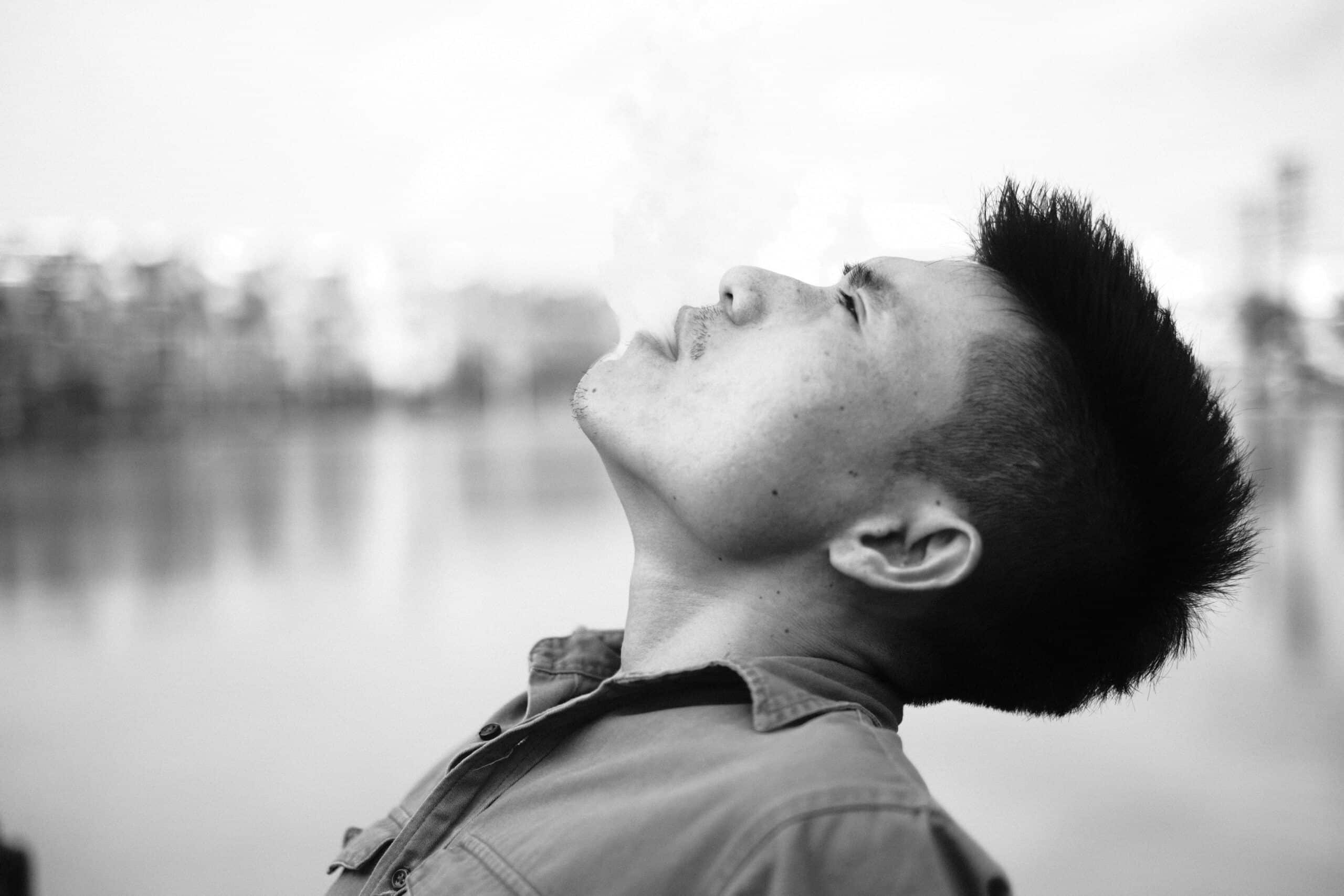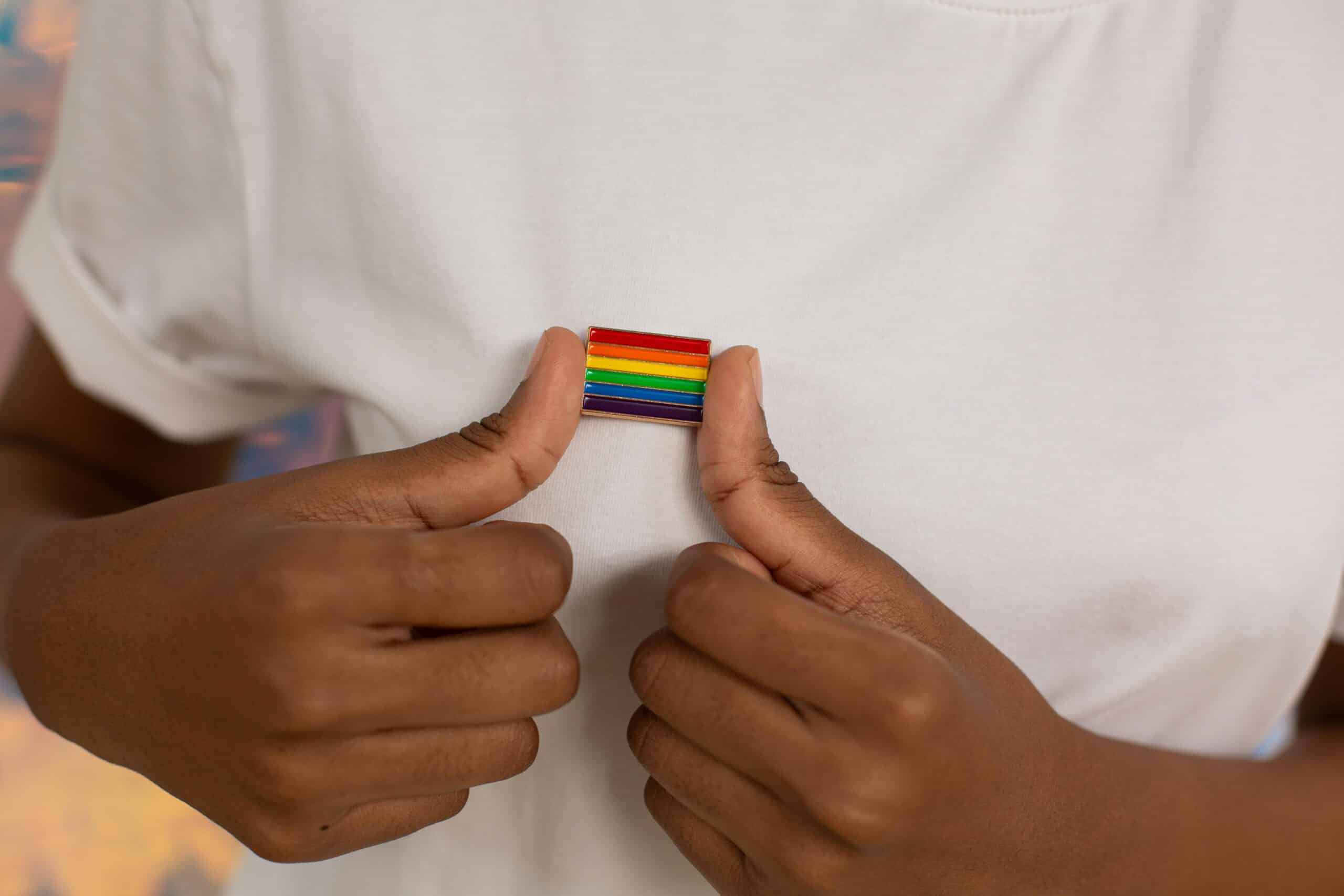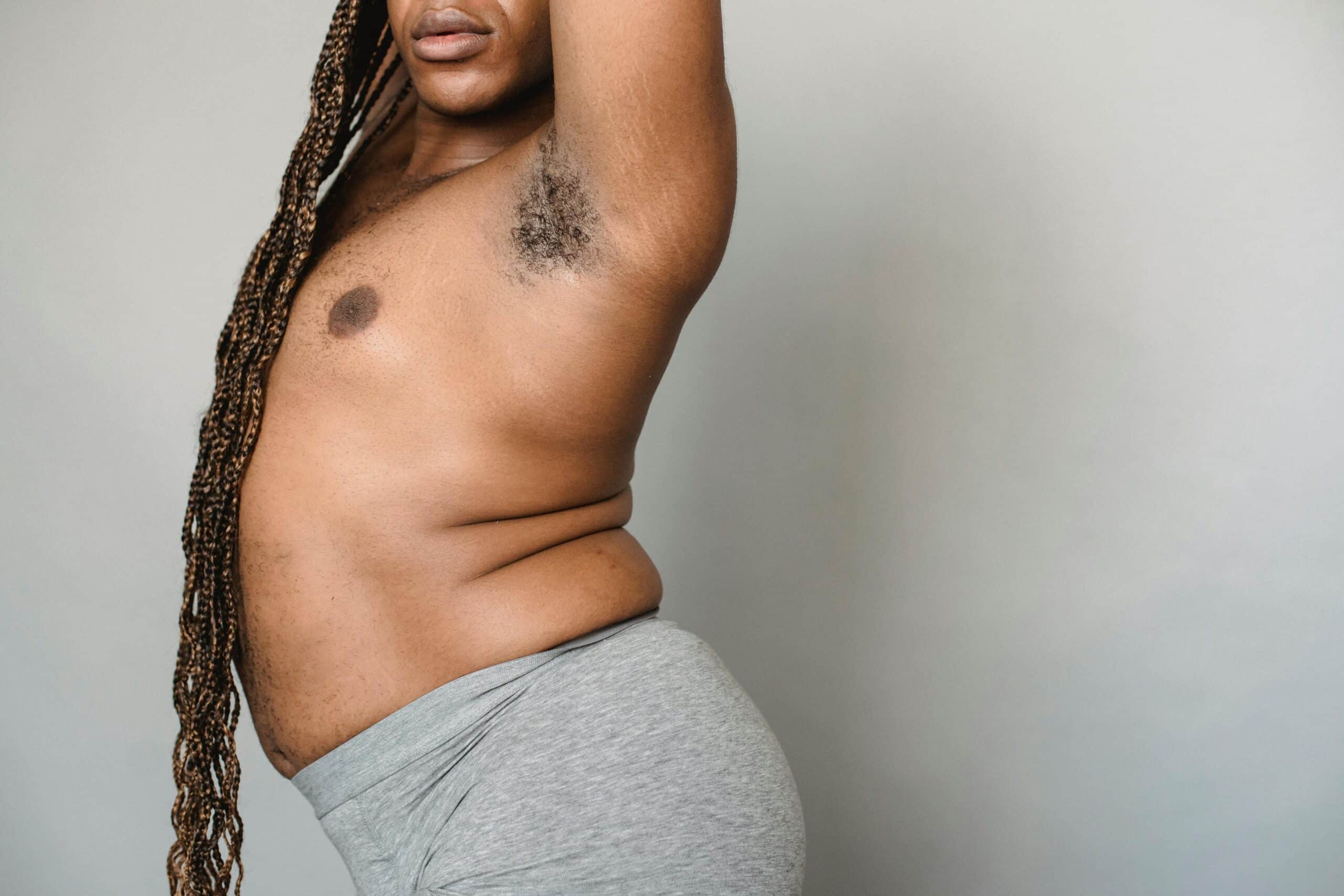5 best countries to live in if you’re LGBT

Obviously, members of the LGBTQ community want to feel safe where they live and when they travel, no matter what their gender identity. This doesn’t just mean legal status. Many places have anti-discrimination laws on the books, such as the US, but anti-discrimination legislation at the national level does not mean social acceptance, nor does it prevent discrimination in all aspects of living. Healthcare services and educational institutions in America, for example, do have discriminatory policies, especially with respect to transgender rights. And conservative religious influence even fosters such activities as conversion “therapy” for gender minorities, in an effort to “pray the gay away” or worse, encourage parents to place their children in special “camps.”
While much progress has been made, especially within the past decade, sexual and gender minorities still need to know where they are both safe from hate crimes and bad laws, enjoy full equal rights, and where public opinion is largely in their favor. Fortunately, they can learn how to find the best and worst gay-friendly countries with a bit of research. There are organizations that measure this and list the most gay-friendly countries.
How LGBTQ+ Rights and Acceptance Are Measured
The subject of LGBTQ+ rights and acceptance is broad with many factors to be compared – the legality of same-sex marriage, acceptance by the non-LGGBTQ+ population, anti-discrimination legislation, etc., all the way down to gay pride parade events and the best gay scene including gay bars, social clubs, and the like.
Reputable organizations that analyze and compare countries provide excellent information:
Pew Research Center
This center conducted a global survey on homosexuality and has produced an LGBTQ global acceptance index. It’s lengthy and very detailed but worth the read. It’s basically a worldwide public opinion survey, but it covers, Africa, the Middle East, South America and the rest of Latin America, Southeast Asia, the rest of the Far East, Eastern and Western Europe, and North America. You’ll gain a lot of insight if you want to find a gay-friendly country for travel or residency.
UCLA Global Acceptance Index (GAI)
This report provides survey data from 175 countries on social acceptance and rights of the LGBTQ community and was conducted in conjunction with the LGBTI Global Rights Initiative. It provides a ranked index of the top 20 countries for sexual and gender minorities.
Equaldex Equality Index
This index ranks countries based on the equality provided to members of the LGBTQ community. There are plenty of graphs and charts to study. Each country is given a score of 0 -100, 100 being the highest level of equality.
Asher and Lyric LGBTQI+ Travel Safety Index
This thorough research study ranks 203 countries, not based on surveys but on solid research in areas of:
- Countries that legalize same-sex marriage or legalize same-sex unions (lower point value)
- protections for workers
- legal protections for all members of the LGBTQ community, from constitutional guarantees to national, regional, and local laws.
This is a long and detailed report but worth the read for anyone in the LGBTQ community who plans to travel or reside in another country. You may find info on transgender rights related to their legal gender, adoption laws, and even such things as inheritance and inheritance tax laws.
Defining a Few Terms Here Before Going On
There are a host of terms that refer to members of the LGBTQ community – LGBTQ+, LGBTAI, LGBTQIA+, and 2SLGBTQIA+.
Obviously, the longer the term, the more inclusive and specific they are.
For purposes of this article, the use of LGBT community is meant to refer to all non-hetero/non-cisgender individuals. And the overly broad term “gay” will be used to refer to these individuals as well. After all, a gay Pride Parade includes them all, even though some may have their own pride events at different times and places.
Let’s just accept the United Nations definition: “any individual having sexual orientations, gender identities, gender expressions and/or sex characteristics that place them outside culturally mainstream categories.”
With all of this in mind, it’s time to take a look at the most gay-friendly country rankings as determined by all of the indexes we mentioned above and more.
Canada
By all indexes, Canada is the best country for LGBT to live. It was the first country, except for many in Europe, to legalize same-sex marriage (and fourth in the world), in 2005. Same-sex couples can adopt children, and anti-discrimination regulations that protect all members of the LGBTQ community are codified in its constitution. Sexual identity of any type is recognized and protected.
LGBTQ life in Canada is filled with events and venues for gay people. In fact, the vibe is lively and vibrant, with gay bars, neighborhoods, and filled with Pride events.
Sweden
Sweden has legalized both same-sex marriages and same-sex relationships, along with adoption for same-sex couples. But rights for LGBT people go well beyond that. There are anti-discrimination protections in the constitution for those of any gender identity or sexual orientation. And any violence against members of the LGBTQ community is a criminal act. It was also the first country to declassify homosexuality as a mental illness (1979).
As to the gay scene, nothing could be more vibrant. Of course, Stockholm is not only a mecca for gay men and lesbian couples, but for any member of the LGBTQ community. This city features bars, hotels, nightclubs, and plenty of more intimate venues. Outside of the capitol, cities like Gothenburg and Maimo are centers for queer events throughout the year. It almost seems that there is a permanent pride parade. Sweden takes the lead among other European countries.
The Netherlands
Another progressive and inclusive society within the European Union. Rights and protections for all LGBT members are codified in the Constitution. Though many may not know this, same-sex activity has been legal since 1811.A few other facts:
- Transgender people can change their legal gender without undergoing any physical changes and without any government documents.
- LGBTQ community members serve openly in the military.
- Registered same-sex partnerships have been legal since 1998 and same-sex marriage since 2001.
- Legal protections include employment
- Gay couples have all of the same adoption rights as heterosexual couples.
Amsterdam is without question the gay capitol of the Netherlands. There are more than 100 bars, hotels, clubs, saunas, etc. clustered in popular neighborhoods and dicier spots, especially in the red-light district.
Amsterdam Pride is one of the largest celebrations in Europe – a full week in August when the LGBTQ community comes out in full force with street parties, club nights, dancing, sports, and more. All of this culminates with the Canal Pride Parade. Hundreds of thousands attend from all over the world.
Obviously, the Netherlands ranks among the top LGBTQ-friendly countries on every gay travel index.
Iceland
In 2010, by unanimous vote of its legislature, Iceland voted to legalize same-sex marriage. Prior to this year, it had a body of anti-discrimination law on its books which provided rights and protections to LGBT people. For example, since 2006, same-sex couples have enjoyed the same adoption and in vitro fertilization rights as heterosexual couples. And in 2018, a comprehensive piece of legislation was passed that banned any type of employment discrimination for any and all LGBT people.
Another major claim to fame? Openly gay head of state and former prime minister Johanna Sigurdardottir served from 2009 – 2013.
Gender expression in Reykjavik is open and tolerated. Lesbian couples, gay partners, and even transgender people walk openly and freely on the streets with no fear. While there are a few gay bars, LGBTQ community members do not feel any need to separate themselves from the hetero population – score one for unity.
Reykjavik has an amazing gay pride celebration attracting both permanent residents and tourists. Even heteros participate – score two for unity.
In sum, Iceland is one of the most LGBTQ-friendly countries in the world.
Republic of Malta
Malta? Who would have thought that this tiny nation of just a little over 500,000 people would be among the top 10 of the most LGBTQ-friendly countries? But throughout the 20th and 21st centuries, this nation has steadily worked to improve rights and protections for its LGBTQ population.
Same-sex marriage is legal as is adoption and equal access to healthcare, including gender-affirming treatments and surgery. Laws on the books outlaw discrimination in housing and employment, and any violence against non-binary people is a crime, just as it would be against any other person. If it is determined to be a hate crime, the penalties are greater. Conversion therapy is banned, and gays serve in the military with full openness.
In other words, in Malta, LGBTQ rights are human rights.
It’s important to note that Malta has the lowest incidence of violence against transgender people in the world. How’s that for safety?
Relative to the gay scene in Malta, here is a great video to view that will highlight plenty of places – beaches, bars, clubs, and more.
Gay Pride week is every September in Valletta, the capitol city.
Portugal
Portugal legalized same-sex marriage in 2010, becoming the 8th country in the world to do so. And in 2016, gay couples got equal rights to adopt. children. Gay, lesbian, and bisexual people may join the military. Rights and protections for all LGBTQ+ community members are in the Portuguese constitution, along with anti-discrimination clauses in employment.
The gay scene in Portugal is vibrant and is a popular and safe destination for travel and residency. Most of the organized events happen in the Bairro Alto and Principe Real districts of Lisbon and in the close by town of Cascais.
Lisbon hosts a Pride event every year complete with a parade, over two days in June, but there are many other events in other towns and throughout the year.
Travelers may want to go during Queer Lisboa, an international film festival featuring all varieties of queer cinema and gender expression.
Belgium
Belgium is often characterized as a “trailblazer” in the promotion of LGBT rights, being the second country in the world to legalize same-sex marriage. It ranks tops with the Rainbow Europe Index by ILGA-Europe. The country shows its values with a large body of legislation ensuring rights and protections for the entire LGBTQ community.
Belgium was the second country to legalize same-sex marriage and allows equal adoption rights and military service. Worker protections are also codified into law.
Antwerp prides itself on being a city of diversity and unity in that diversity. The LGBTQ vibe is open-minded with plenty of attractions and lots of nightlife destinations – clubs, bars, saunas, etc.
Antwerp Pride is a multi-day event in August of each year with parties, concerts, cultural exhibits, and more. Darklands is another LGBTQ event, focusing on the kinkier side of the culture celebrating full freedom of expression and activity.
The UK
In 2014 the UK legalized same-sex marriage although it recognized civil unions before that. Such unions were not considered “official” and partners did not have the rights of married couples. Today, same sex couples do enjoy those full rights, including equal housing, job opportunities, and allowances that the military provide hetero couples.
All over the country, the UK LGBTQ+ community and its foreign gay guests celebrate queerness with festivals, parties, club events, concerts, film festivals, drag nights, and more. Where is the scene really hot? In Brighton, the “official” gay capitol.
The UK celebrates pride the entire month of June, so if you plan a trip, do it then. You’ll have an experience not to be forgotten.
Spain
Spain legalized same-sex marriage in 2005, along with the same rights to adoption as heteros. It has national employment protections for sexual orientation, including all LGBTQ+ identities, even intersex people. All sexual orientations may openly serve in the Spanish military.
If you want pride celebrations, you go to Spain from May thru September.
- Maspalomas Pride – on the island of Gran Canaria, 10 days May. Attracts people from all over Europe and the world.
- Sitges Pride – near Barcelona on the coast. 4 days in June. Parties, concerts, beach life, and more.
- Ibiza Pride – on the Balearic Islands for 8 days in June. One of the largest pride events in Spain.
- Madrid Pride – called Orgullo Madrid. Attracts millions from all over the world. End of June thru first part of July
- Barcelona Pride – almost a full month of celebration from the end of June on. Thousands from all over the world.
- Benidorm Pride – also known as the “European Summer Closing Pride” event. First part of September. Began in 2011 very small but grows every year. Thousands now attend.
Need we say more? Spain has a commitment to the LGBTQ+ community.
France
France legalized same-sex marriage in 2013, along with adoption rights. There are strong legal protections for employment based on sexual orientation and gender identity. All in the LGBTQ+ community can serve in the military. One thing stands out here. In 2004, the French Assembly added an amendment to its anti-discrimination laws making homophobic comments illegal. Changing gender is legal without any medical requirements at all.
Paris Pride happens at the end of June every year. and is named Marche des Fiertes LGBT. Festivities include parties, concerts, exhibits, etc. Other pride events happen in Lyon, Toulouse, and Bordeaux
The gay lifestyle in France is vibrant and open. Bars, hotels, private clubs, saunas, and more are all part of the vibe.
Check out this great video of gay nightlife in France.
That’s the Top Ten
Well, it’s the top ten according to many. Are there other safe and welcoming LGBTQ-friendly countries on the planet? Of course, there are, and with a bit more research, you can find those that fit your pleasure. But what about those that should be avoided at all costs? Well, there are plenty of those too. Let’s have a look.
Muslim Countries
As you might have guessed, those countries that are predominantly Muslim are the least safe for any non-hetero sexual orientation. And in some of these countries, same-sex sexual activity is a crime punishable by death, either prescribed or allowed, usually by stoning. Those countries include Brunei, Afghanistan, Iran, Pakistan, Mauritania, Qatar, Nigeria, Somalia, Saudi Arabia, United Arab Emirates, and Yemen. The death penalty is literally on the books in all of these nations.
Other Countries
While the death penalty is not prescribed or allowed in many other countries, there 67 UN member countries that criminalize same-sex couples from engaging in sexual activity and 2 more that declare such activity illegal.
There are many countries without the death penalty that have stiff prison terms – some that will probably surprise you- Grenada, Jamaica, and Santa Lucia, for example. Check out the full list here so you know which are not gay-friendly countries even though they may be tourist spots.
But what about the United States? It is obviously not a death penalty country but it is not on the list of top LGBTQ-friendly countries either.
The Curious (and Alarming) Case of the United States
During the 20th century, the US made big strides toward becoming one of the most LGBTQ-friendly countries in the world. After all, same-sex marriage was legalized, as well as adoption by same-sex couples. These achievements were the result of federal and Supreme Court decisions.
What has happened since has been not just disappointing but alarming. The right-wing movement in America has turned LGBTQ+ rights into a political device to advance an agenda that threatens to upend even gay marriage. And a highly conservative and politicized Supreme Court may be poised to turn the entire issue back to each state. People of non-binary sexual orientation and gender are already the target of 300+ anti-LGBTQ and anti-trans pieces of legislation, some already passed, some in the proposal stage.
In 2023, the US fell to 25th in the world in terms of gay travel safety. LGBTQ+ rights are no longer human rights in many states, and the LGBTQ+ population is being warned not to visit or reside in certain states, for fear of violence. In fact, by 2022, acts of violence against the LGBTQ+ community tripled over the previous year.
There are havens where the LGBTQ+ community can feel safe and where gay rights are still human rights. San Francisco, in fact all of California, is such a haven, for example. And there are a few other states in which same-sex marriage, orientation and gender, and all other LGBTQ+ rights are fully welcomed and honored. Stick to those states and avoid the others.
Where We are as a Civilization
The world is a diverse place, filled with a large variety of religious, cultural, and societal norms. For the LGBTQ+ community, gay rights are not human rights in a large part of the world. Not only is there no same-sex marriage, but any gay activity is outlawed and punishable with prison or even death.
And yet, there is a large number of countries where LGBTQ+ rights are protected by constitutions and large bodies of law, and that hold celebrations of all sexual orientations and genders. Be certain you travel to and reside in those countries where you are safe and protected.



